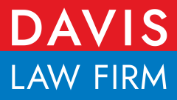With the Great Recession now "officially" behind us, a lot of the public commentary is focused on how Americans’ financial situations are slowly, but surely, improving. As nice as it sounds, this isn’t the case for everybody. Too many households are still reeling from the economic crisis.
This is as true in San Antonio as it is in the rest of the country. In fact, recently released statistics from the U.S. Bankruptcy Court for the Western District of Texas, which encompasses the San Antonio area, show that bankruptcy filings in November 2012 were 16.5 percent higher than they were the year before.
There were a total of 303 bankruptcy filings in the San Antonio area in November 2012, compared with 260 in November 2012. Of those, the vast majority were for personal bankruptcies. A total of four businesses applied for either Chapter 7 or Chapter 11 bankruptcies in November 2012. By comparison, 113 individuals filed for Chapter 7 bankruptcy and another 186 individuals filed for Chapter 13 bankruptcy.
Is bankruptcy right for you?
In one respect, these numbers show just how precarious Texans’ financial situations still are. At the same time, though, they highlight a message that many people in financial distress can benefit from hearing: filing for bankruptcy can help you solve your debt problems, and it’s much more common than you might think.
There are two main types of bankruptcy available to individual (non-business) filers: Chapter 7 and Chapter 13. Chapter 7 bankruptcy is designed for filers with limited incomes. In Chapter 7 bankruptcy, most debts are completely liquidated, though sometimes in exchange for a share of the filer’s personal property. Chapter 13, on the other hand, is designed for bankruptcy filers who have regular incomes. In Chapter 13 bankruptcies, debts are discharged after the individual completes a three- to five-year repayment plan.
In both types of bankruptcy, filers benefit from an "automatic stay" that prohibits creditors from engaging in further collection actions until the bankruptcy process is complete.
A successful bankruptcy will discharge most debts, including credit card debt and medical bills. Bankruptcy can also help stop home foreclosure – Chapter 13 filers even have an option to pay back past-due mortgage payments over several years. It is important to note, however, that some debts are not dischargeable in bankruptcy. Included in this category are alimony and child support obligations, taxes, criminal fines and most student loans.
Filing for bankruptcy is a major decision, and one that should not be taken lightly. Though bankruptcy can be of great help, it also has long-term impacts. If you are struggling with your debt, talk to a Texas bankruptcy attorney who can help you figure out the best options for moving forward.
